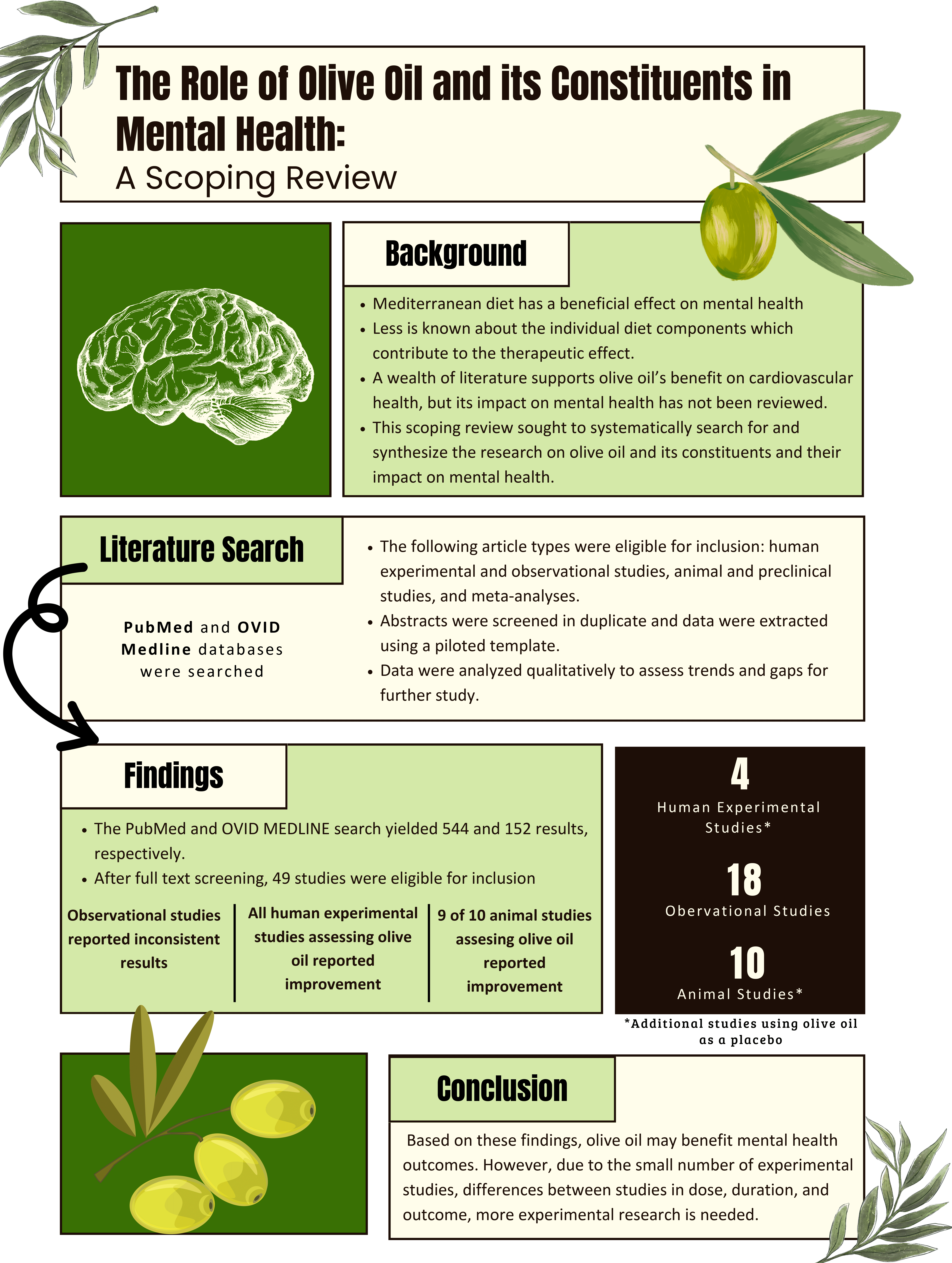No CrossRef data available.
Published online by Cambridge University Press: 19 December 2024

Mounting evidence suggests that the Mediterranean diet has a beneficial effect on mental health. It has been hypothesised that this effect is mediated by a variety of foods, nutrients and constituents; however, there is a need for research elucidating which of these components contribute to the therapeutic effect. This scoping review sought to systematically search for and synthesise the research on olive oil and its constituents and their impact on mental health, including the presence or absence of a mental illness or the severity or progression of symptoms. PubMed and OVID MEDLINE databases were searched. The following article types were eligible for inclusion: human experimental and observational studies, animal and preclinical studies. Abstracts were screened in duplicate, and data were extracted using a piloted template. Data were analysed qualitatively to assess trends and gaps for further study. The PubMed and OVID MEDLINE search yielded 544 and 152 results, respectively. After full-text screening, forty-nine studies were eligible for inclusion, including seventeen human experimental, eighteen observational and fourteen animal studies. Of these, thirteen human and four animal studies used olive oil as a comparator. Observational studies reported inconsistent results, specifically five reporting higher rates of mental illness, eight reporting lower and five reporting no association with higher olive oil intake. All human experimental studies and nine of ten animal studies that assess olive oil as an intervention reported an improvement of anxiety or depression symptoms. Olive oil may benefit mental health outcomes. However, more experimental research is needed.